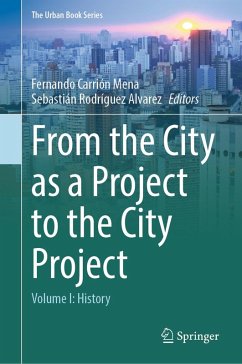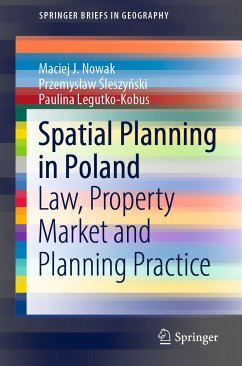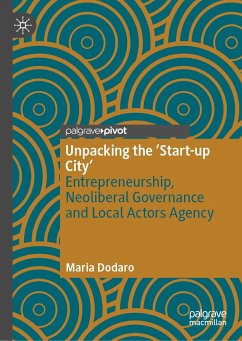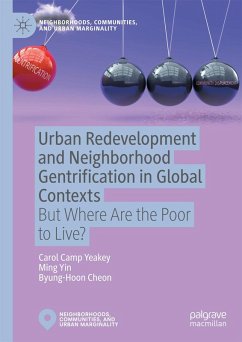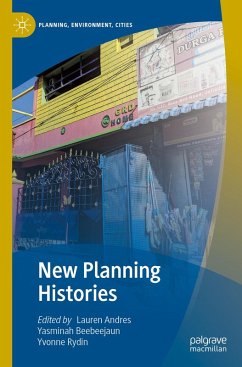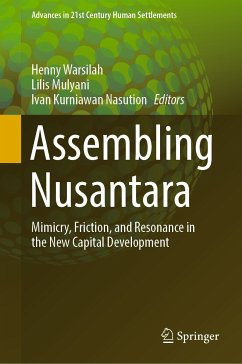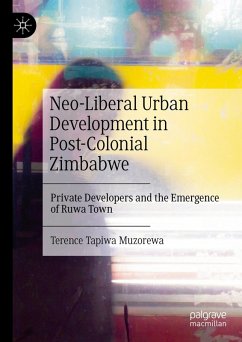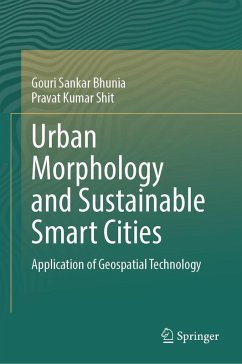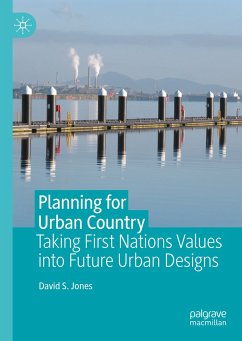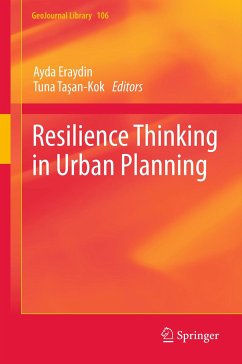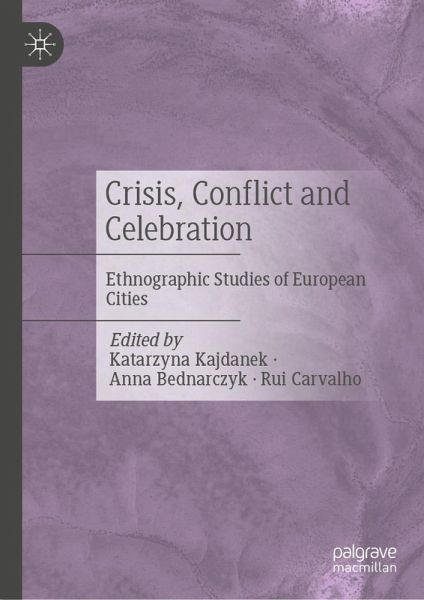
Crisis, Conflict and Celebration (eBook, PDF)
Ethnographic Studies of European Cities
Redaktion: Kajdanek, Katarzyna; Carvalho, Rui; Bednarczyk, Anna
Versandkostenfrei!
Sofort per Download lieferbar
104,95 €
inkl. MwSt.
Weitere Ausgaben:

PAYBACK Punkte
52 °P sammeln!
This book illuminates how the profound challenges faced by contemporary societies over the past few decades, encompassing climate change and other environmental risks, global health threats, warfare, and mass migration, manifest themselves in European cities. The chapters bring cutting-edge ethnographic studies which address these complex issues through three key conceptual dimensions of urban life: crisis, conflict, and celebration.The concept of crisis is critically explored in its various economic, political and cultural dimensions affecting urban residents in multiple social and spatial as...
This book illuminates how the profound challenges faced by contemporary societies over the past few decades, encompassing climate change and other environmental risks, global health threats, warfare, and mass migration, manifest themselves in European cities. The chapters bring cutting-edge ethnographic studies which address these complex issues through three key conceptual dimensions of urban life: crisis, conflict, and celebration.
The concept of crisis is critically explored in its various economic, political and cultural dimensions affecting urban residents in multiple social and spatial aspects of their lives. Crises often lead to conflicts, dynamic processes that give rise to interest groups and complex social landscapes of resistance. By examining conflicts in urban contexts, the book uncovers the power dynamics and vulnerabilities emerging during turbulent times. Crises and conflicts also present opportunities for urban transformation and regeneration, bringing underlying beliefs and norms into question, paving the way for new social dynamics within urban environments. These conflictual spaces can therefore become arenas for celebration of urbanity, where communities express resilience, cultural identity, and collective solidarity.
As well as providing new insights into the present and future of European cities and the pivotal role of urban areas as centers of social change, contestation, and community-building, the book provides an important methodological contribution through innovative qualitative research in a diverse range of European urban areas.
The concept of crisis is critically explored in its various economic, political and cultural dimensions affecting urban residents in multiple social and spatial aspects of their lives. Crises often lead to conflicts, dynamic processes that give rise to interest groups and complex social landscapes of resistance. By examining conflicts in urban contexts, the book uncovers the power dynamics and vulnerabilities emerging during turbulent times. Crises and conflicts also present opportunities for urban transformation and regeneration, bringing underlying beliefs and norms into question, paving the way for new social dynamics within urban environments. These conflictual spaces can therefore become arenas for celebration of urbanity, where communities express resilience, cultural identity, and collective solidarity.
As well as providing new insights into the present and future of European cities and the pivotal role of urban areas as centers of social change, contestation, and community-building, the book provides an important methodological contribution through innovative qualitative research in a diverse range of European urban areas.
Dieser Download kann aus rechtlichen Gründen nur mit Rechnungsadresse in A, B, BG, CY, CZ, D, DK, EW, E, FIN, F, GR, HR, H, IRL, I, LT, L, LR, M, NL, PL, P, R, S, SLO, SK ausgeliefert werden.



